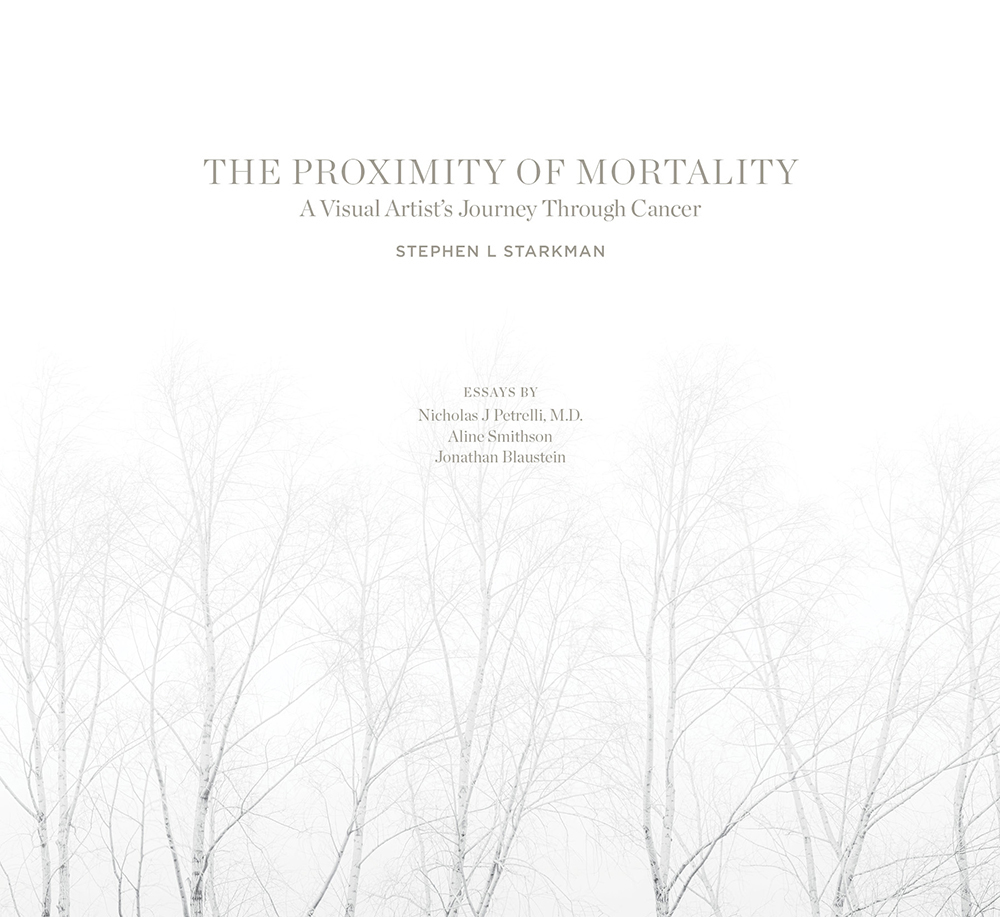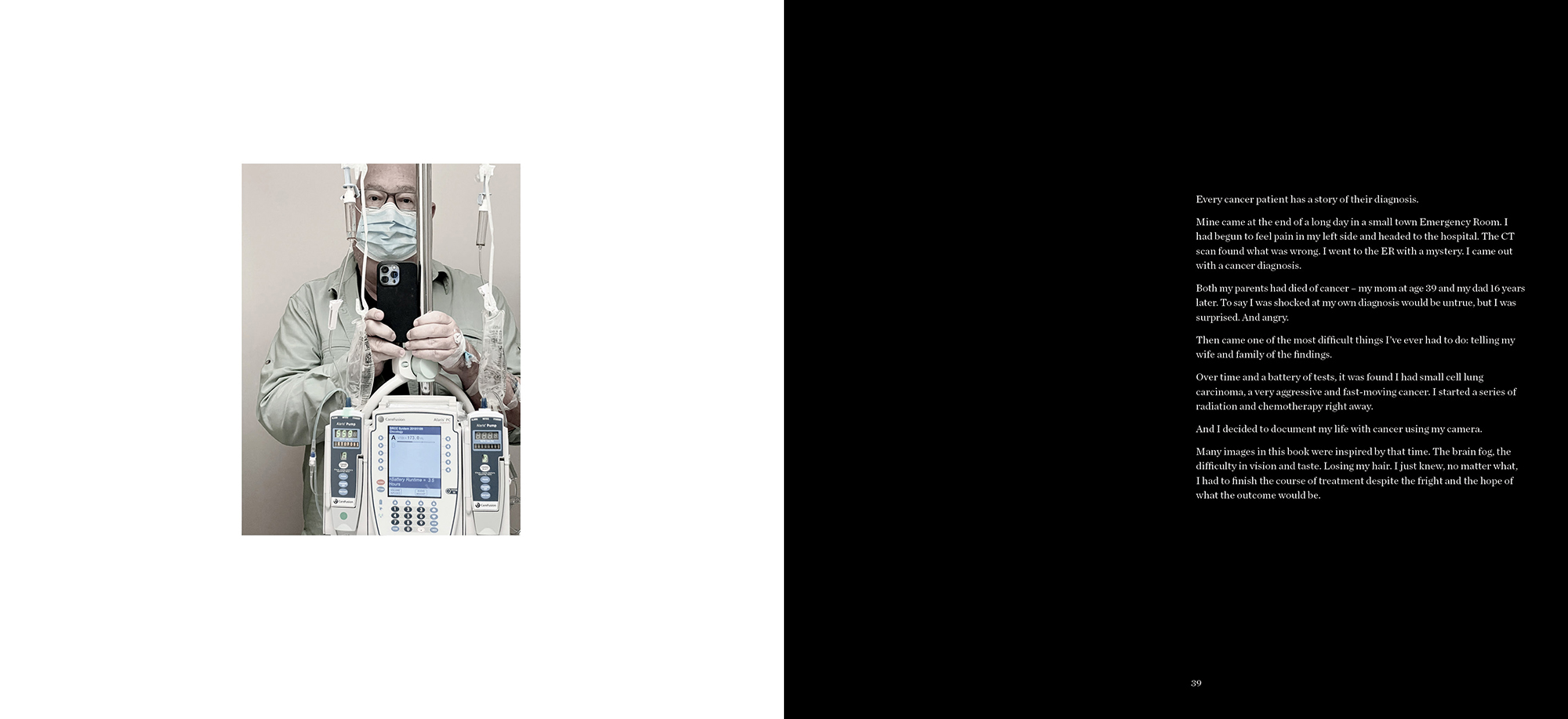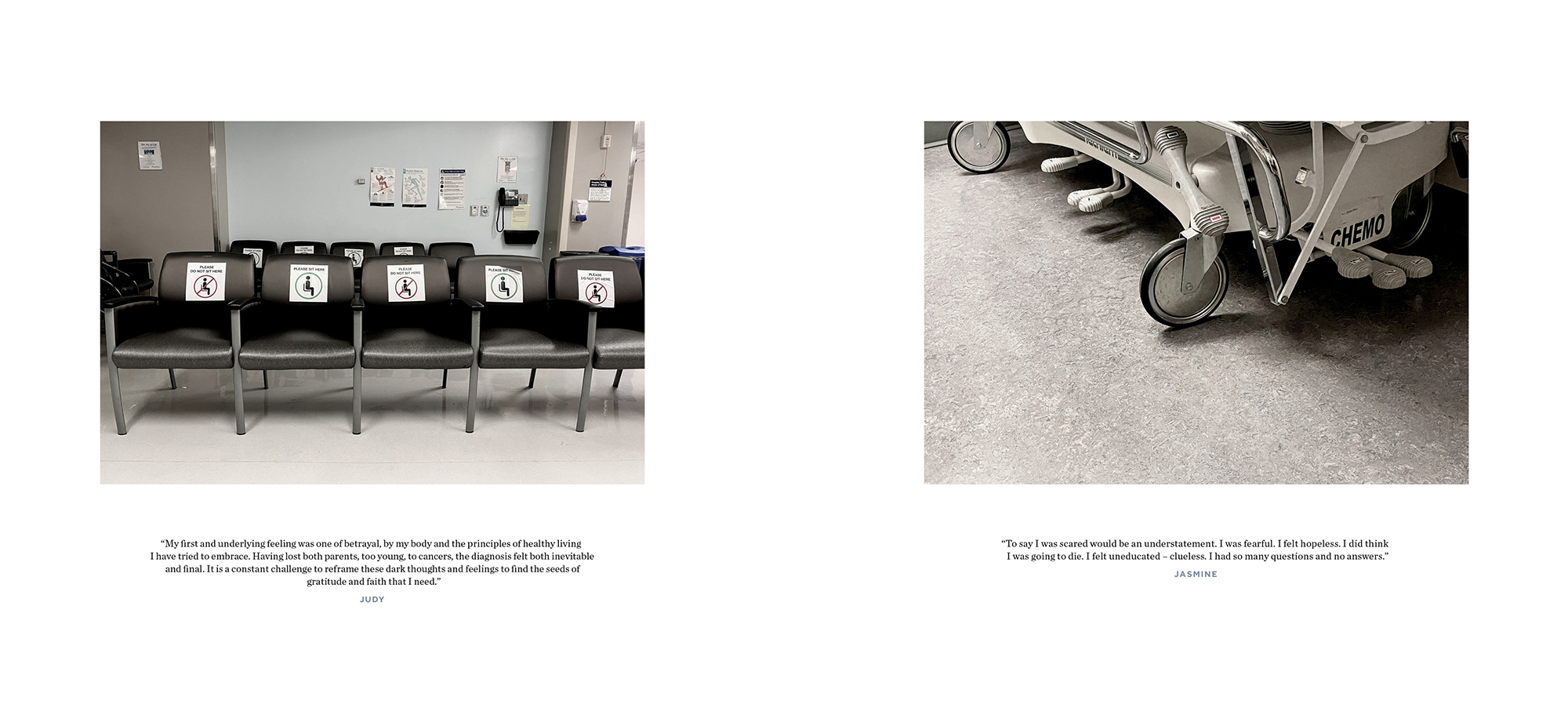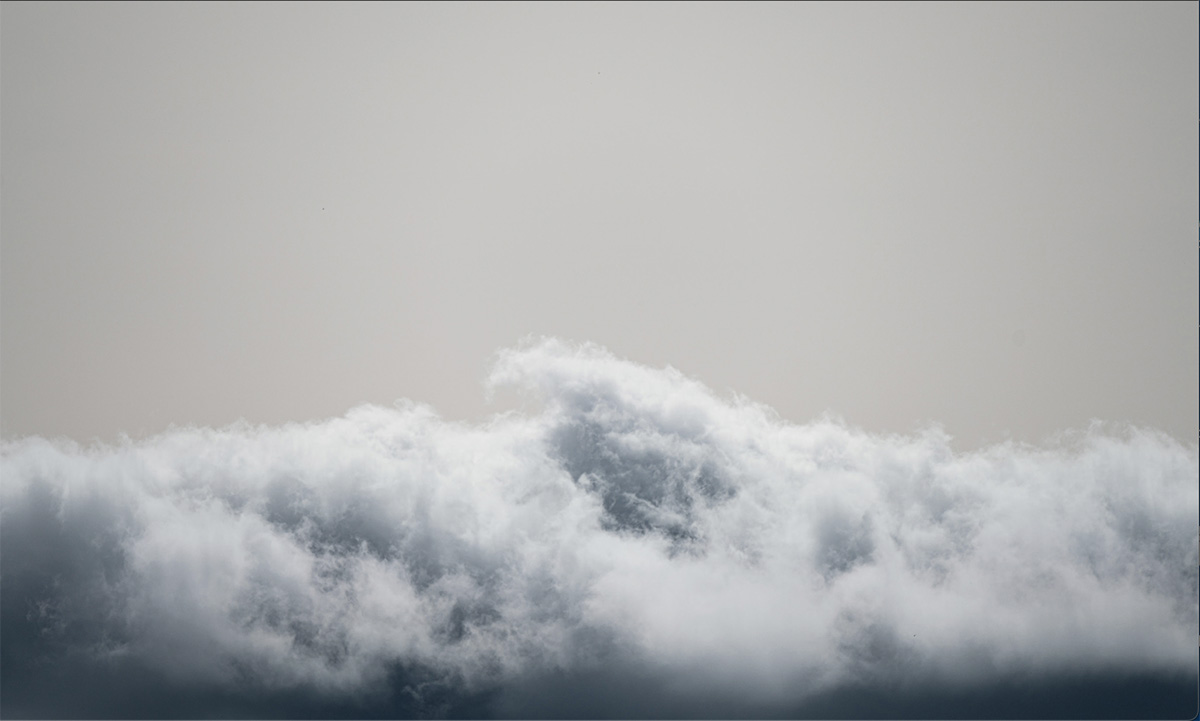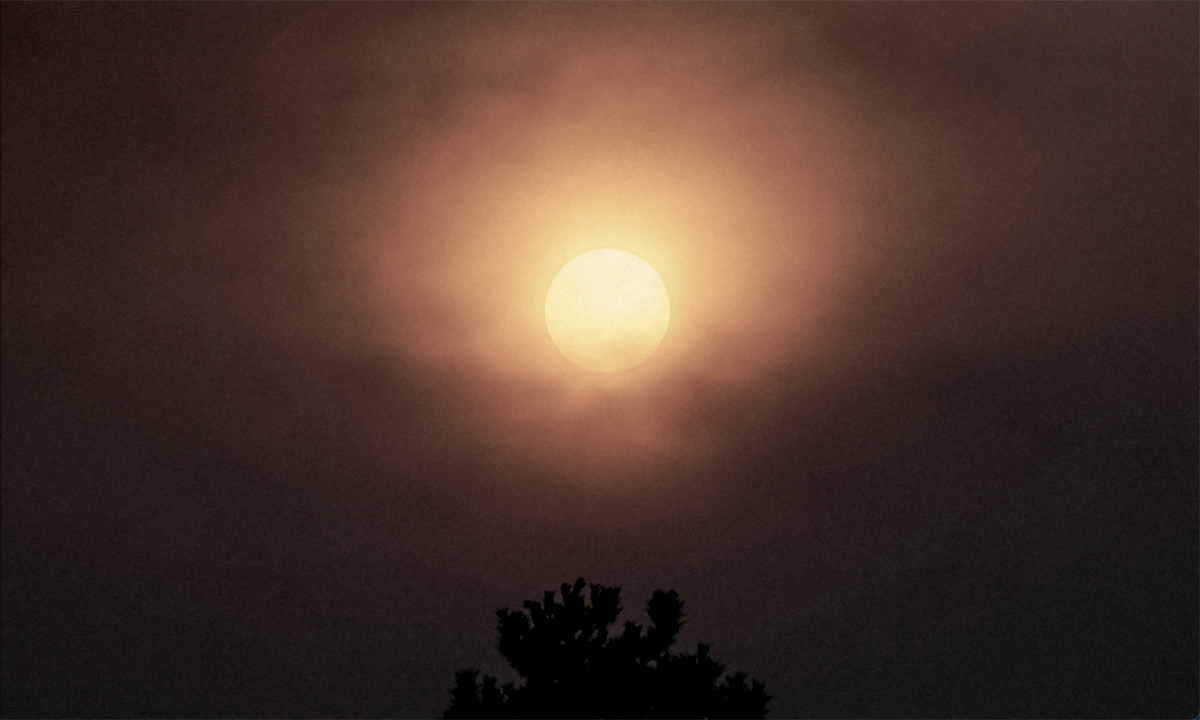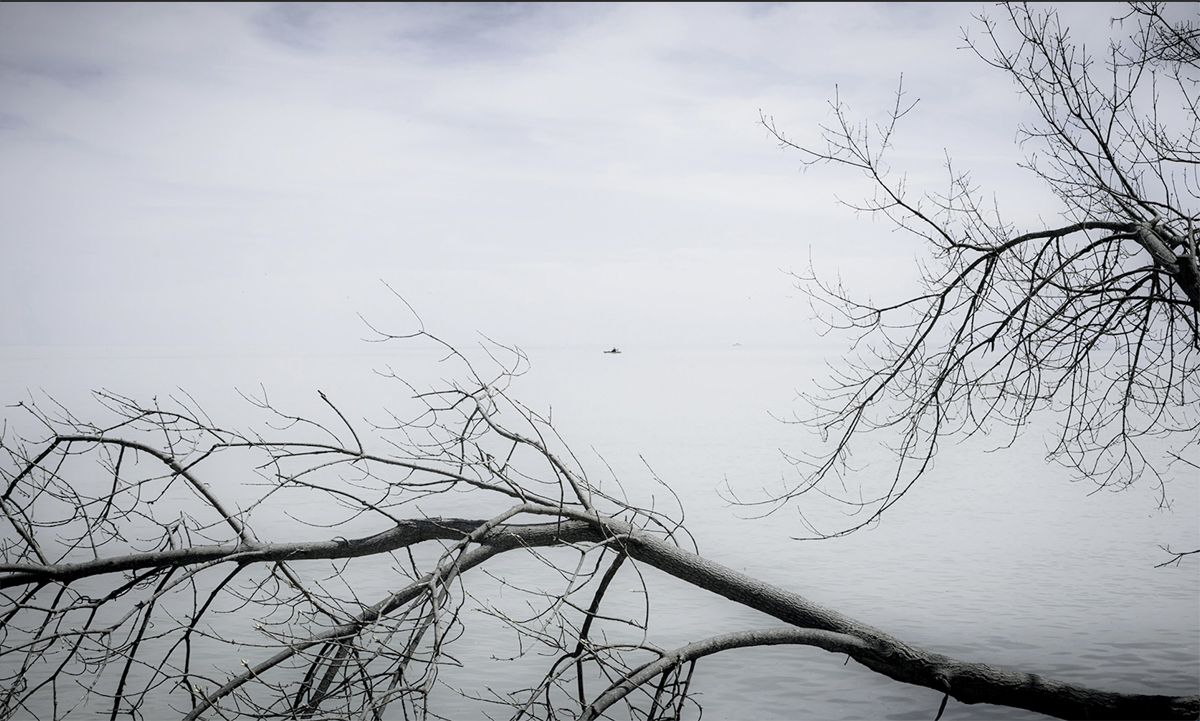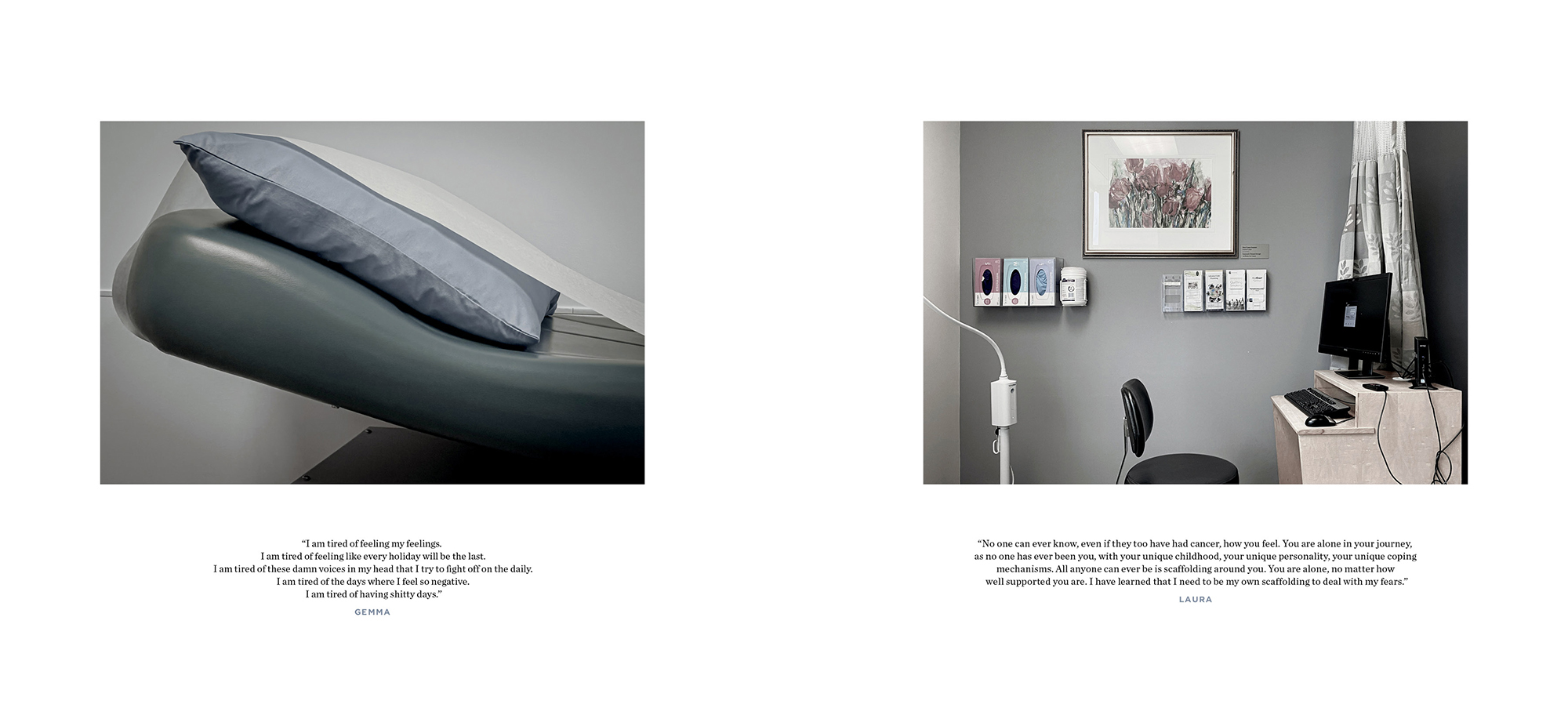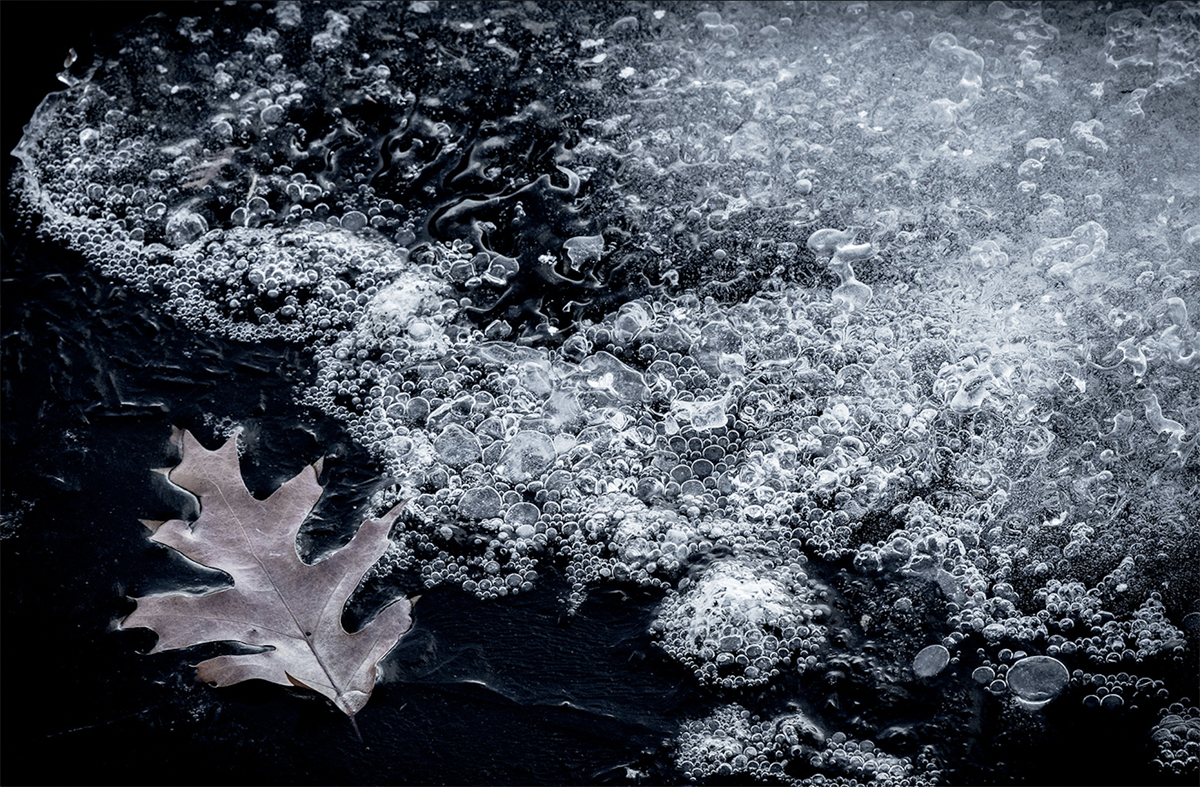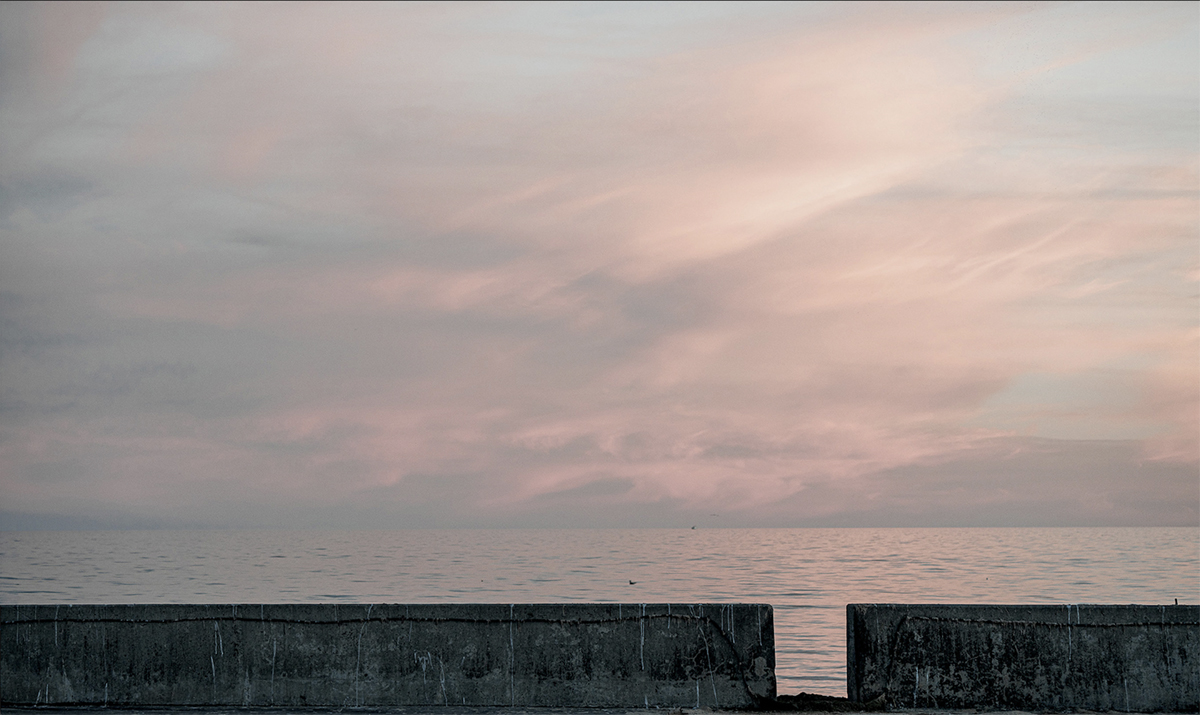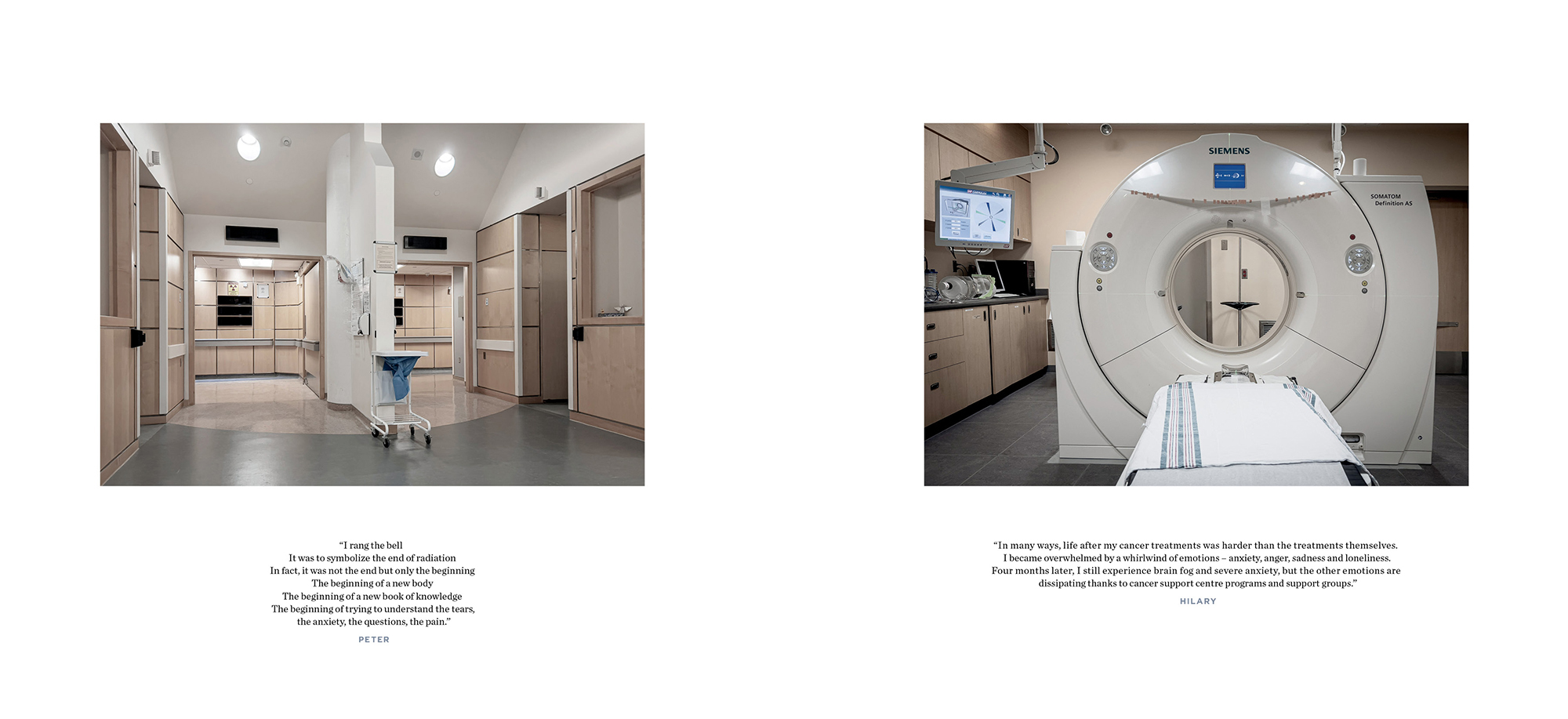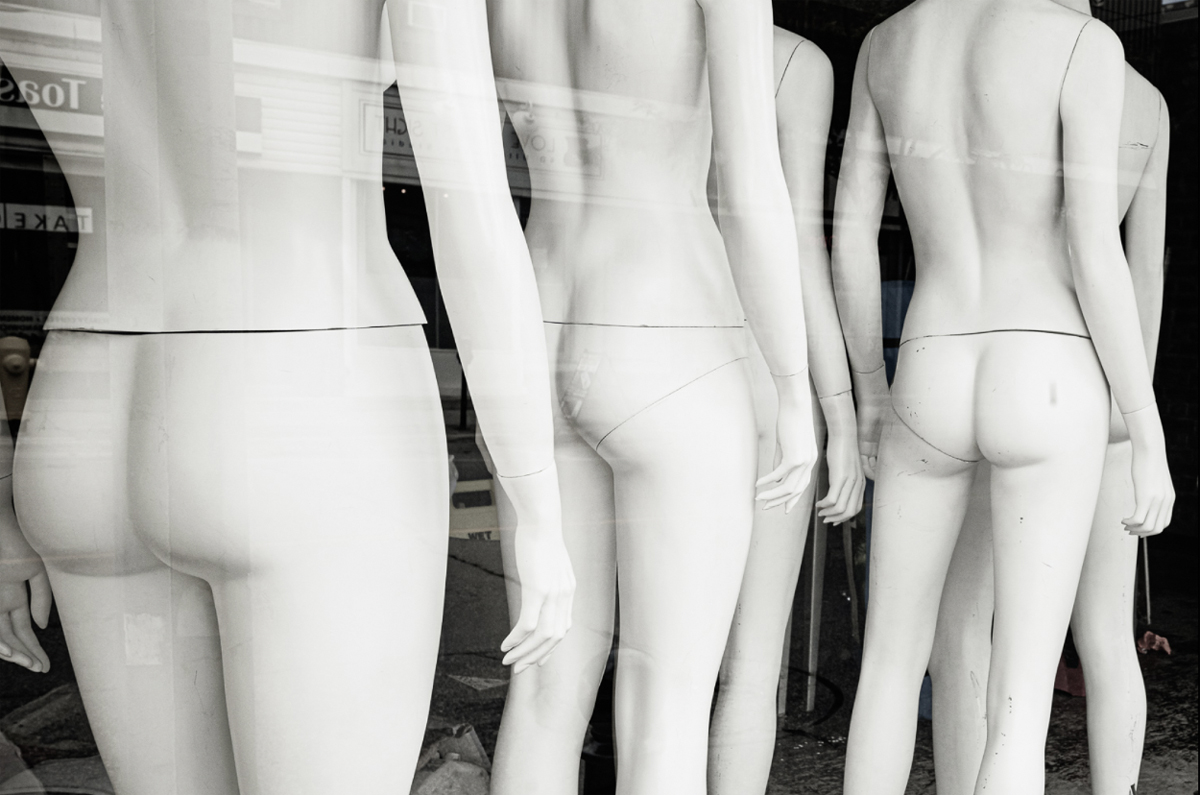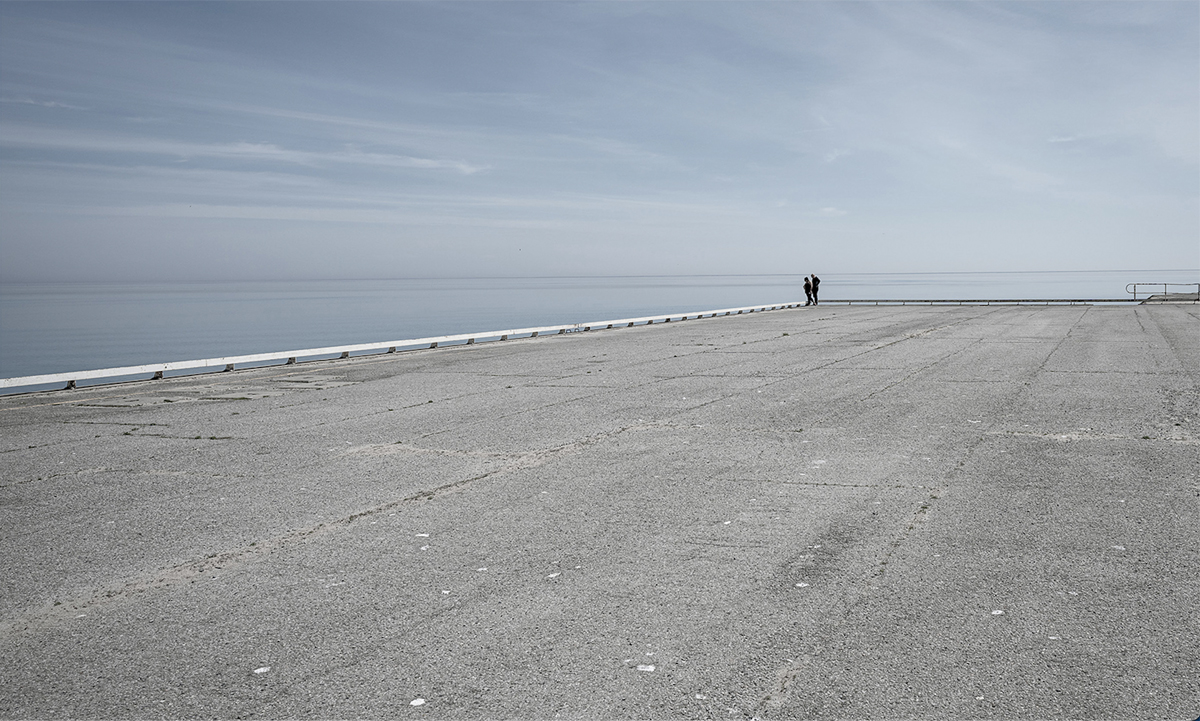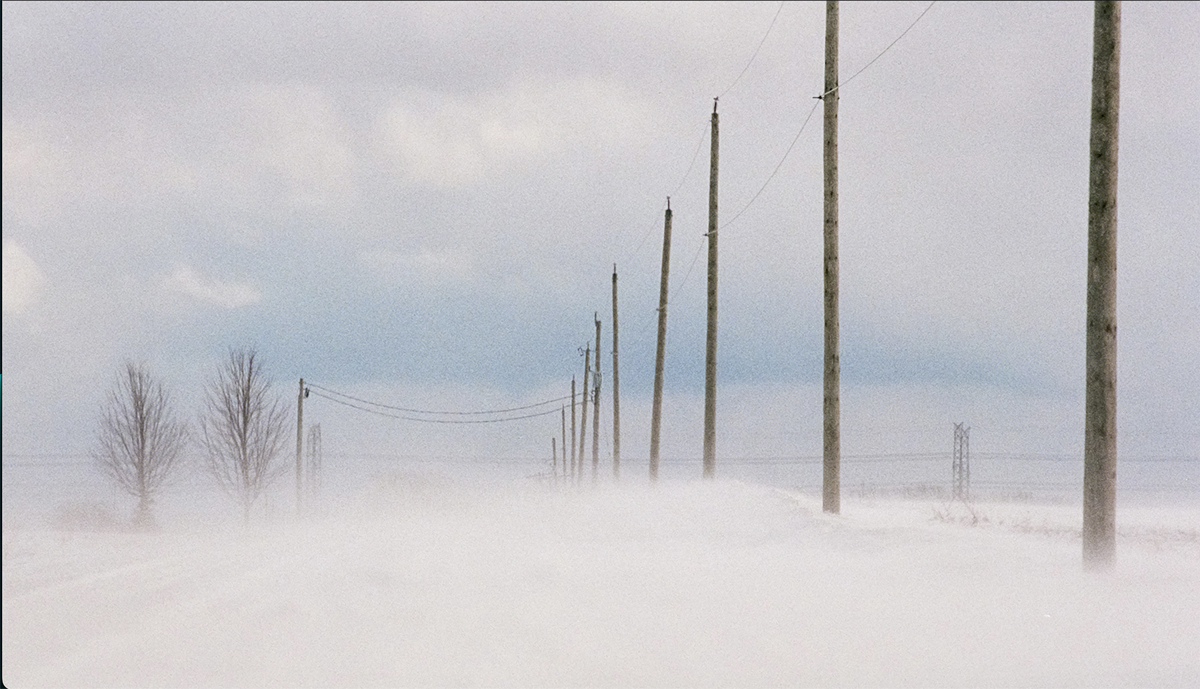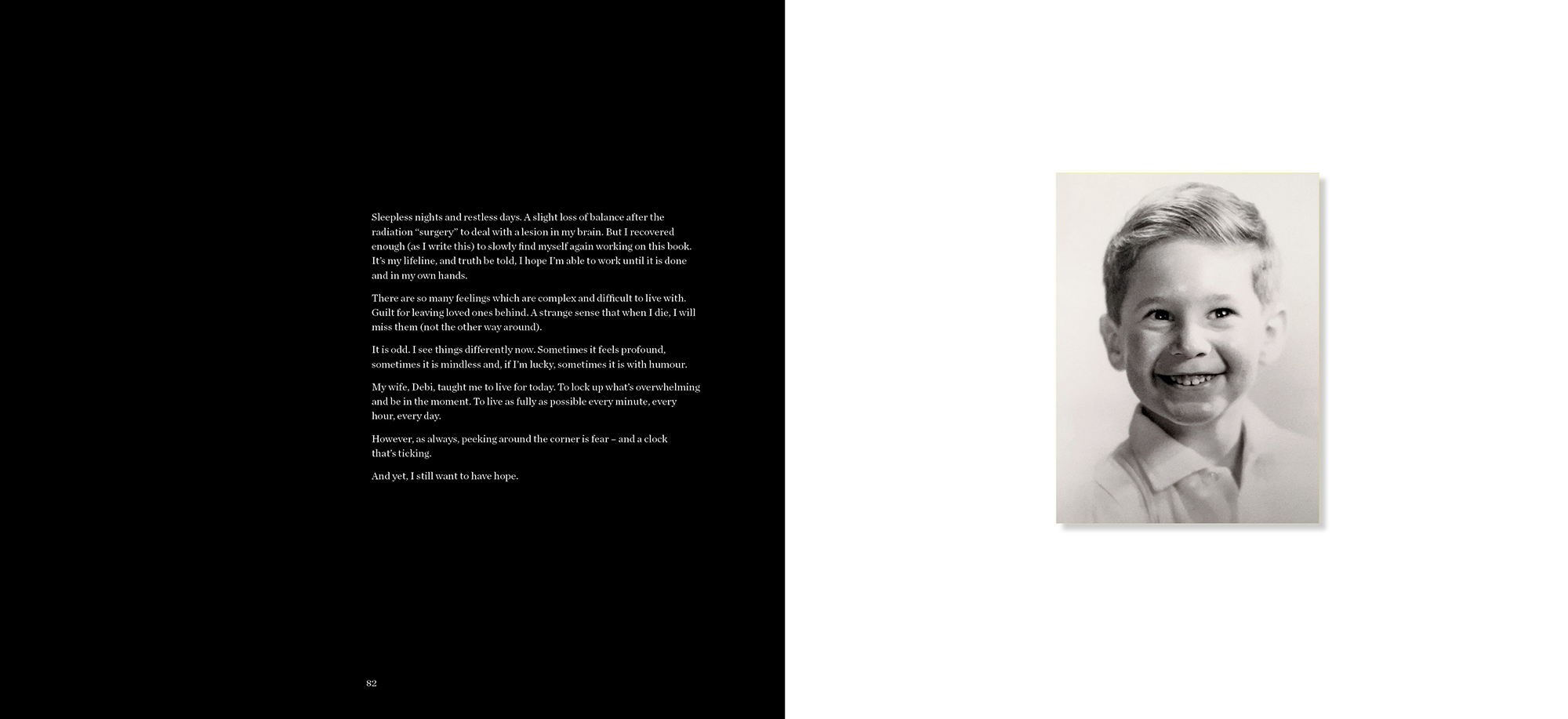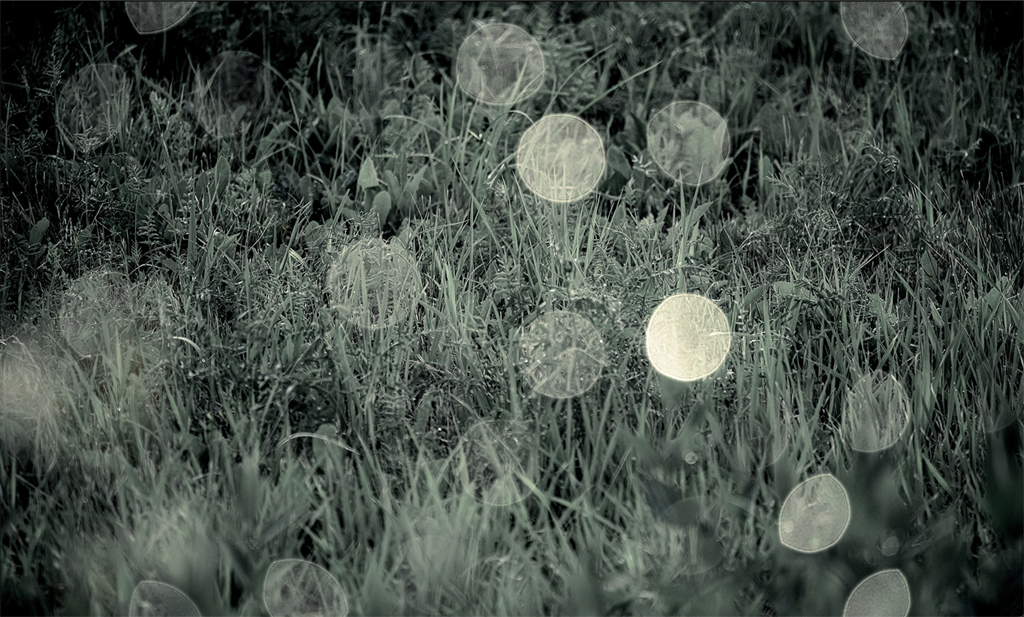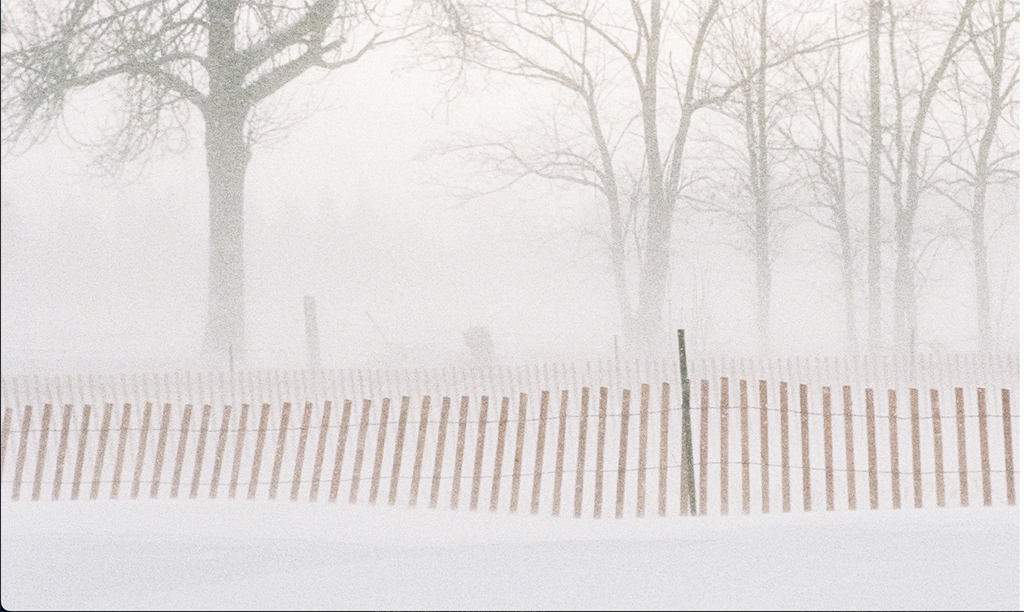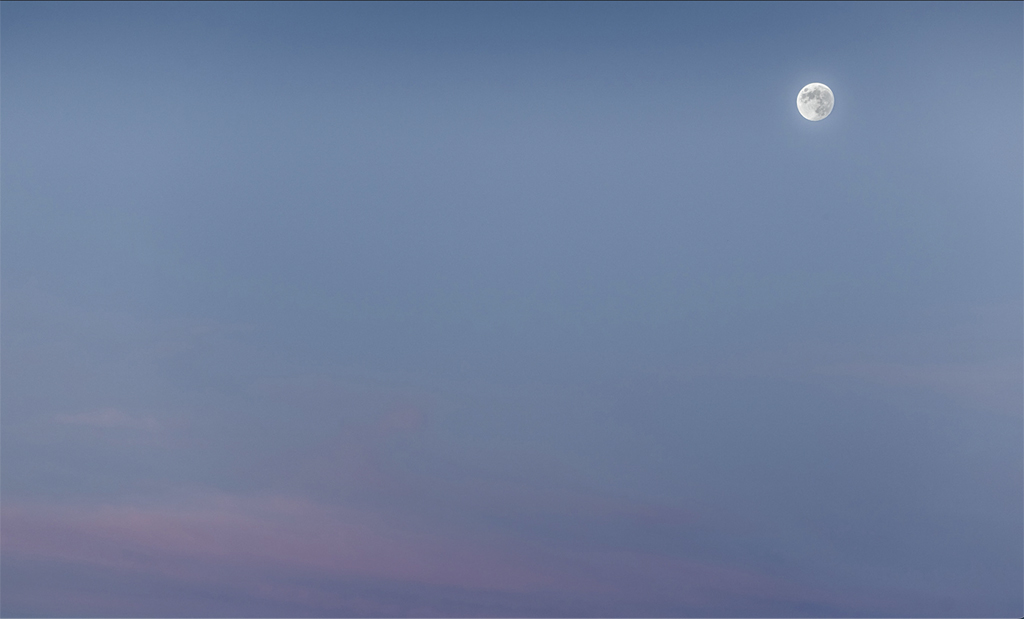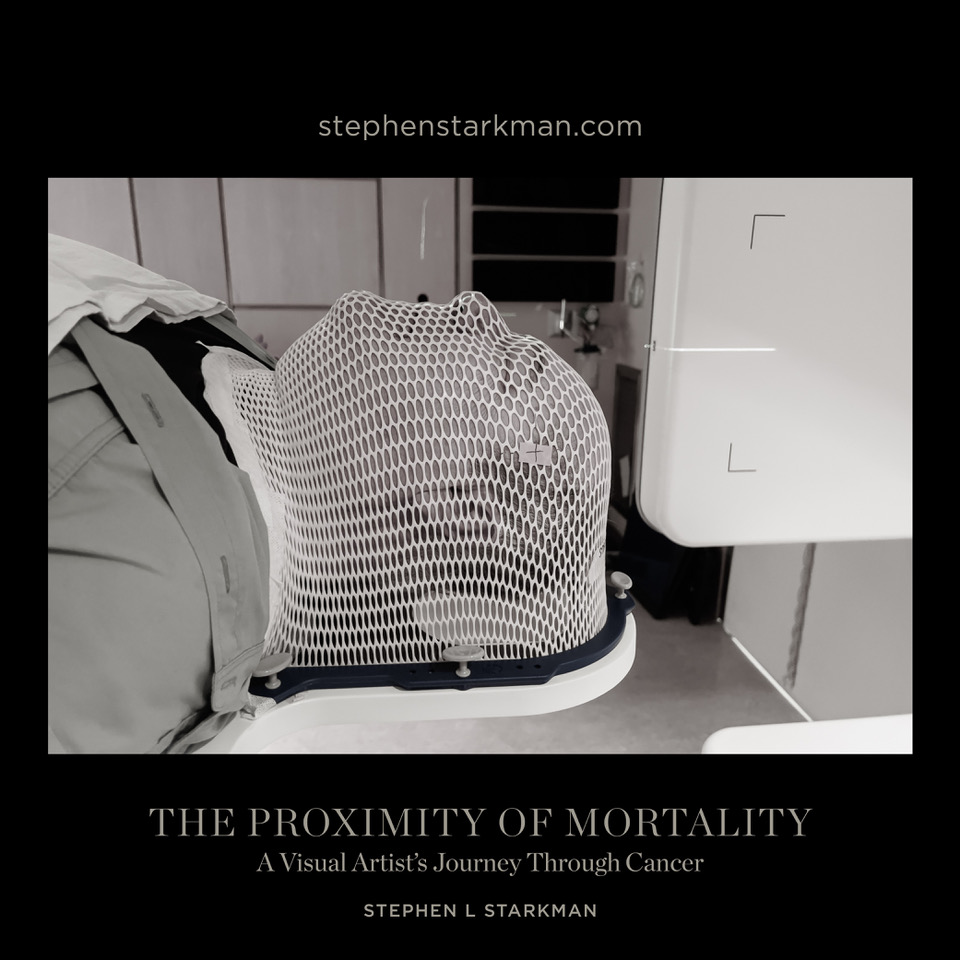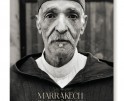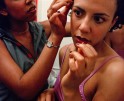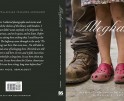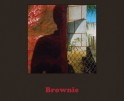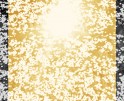Stephen L Starkman: The Proximity of Mortality
“Stephen L. Starkman reminds us that the future is unknown to all of us. As such, this project is a call to live in the moment, to acknowledge that the universe is vast and that we are all bits of matter that exist long after our bodies are put to rest.”
Several years ago, I met Stephen L. Starkman in a zoom portfolio review. Our worlds continued to collide and in January of 2022, he began a long-term class with me. It was during this period that Starkman shared that he was diagnosed with terminal cancer. Wishing to visually document his experience, he began a book project that would beautifully reflect what he was going through. The result is his new monograph, The Proximity to Mortality: A Visual Artist’s Journey Through Cancer. The images throughout this book are at times concrete and visceral, and at other times abstract and ethereal–much like we humans who are a beautiful, messy composite of how we think and feel, the blending of our conscious and subconscious selves. Needless to say, it has been an honor and privilege to bear witness to this remarkable effort and be part of Starkman’s journey into the unknown.
Starkman’s diagnosis of cancer means he has weeks or months left to live on this Earth. He shares that these photographs serve as an invitation to “open a conversation on mortality/death as seen uniquely through first-hand experience.” Art in its purest form can serve as a bridge to communicate between artist and viewer, and in that process, there can be an expansion of perspectives. This dialogue is an important element of this project for Starkman. He continues, “The book is about life, as seen from the perspective of death.”
Starkman’s work as a photographer in the years prior to this project has taken him around the world, but the images in this book reflect a back-and-forth play between the immediacy of the universe of the hospital, along with scenes of the everyday and the here and now — of the “soon to be lost,” he writes. There is sweeping sky and swirling clouds when he looks up; a pattern in stone flooring when looking down; ripples across an impressive lake when looking outward.
You can order the book here. Please consider supporting his efforts.
About this Book:
A Monograph of Stephen L Starkman’s book The Proximity to Mortality: A Visual Artist’s Journey Through Cancer is now available. The book also includes quotes from other cancer survivors reflecting on their experience navigating the disease, and reinforces recurring themes of fear, isolation, fatigue, and the work of the journey itself. Poems by cancer survivor Joanne Boyce also appear in the book.
Through both his photographs and words, Starkman authentically provides the viewer with a small glimpse at the confounding and complex array of emotions that accompany a medical journey such as this. He writes of the dichotomies of hope and fear, the physical manifestations of fatigue and brain fog accompanied by a strong pull and need to continue working on this book project.
About the Contributors:
Nicholas J Petrelli, M.D. is a surgical oncologist and the Bank of America endowed medical director of ChristianaCare’s Helen F. Graham Cancer Center & Research Institute and associate director of translational research at Wistar Cancer Institute. He also serves as Associate Editor of Surgical Oncology for HemOnc Today.
Aline Smithson is a visual artist, educator, and editor based in Los Angeles, California. She is widely exhibited and is also the founder of the celebrated photography journal, Lenscratch.
Jonathan Blaustein is an artist, writer, and educator based in Taos, New Mexico. He has exhibited his work widely in galleries and museums the US, and festivals in Europe. His photographs reside in several important collections, including the Library of Congress, the State of New Mexico, the Brooklyn Museum, and the Museum of Fine Arts, Houston.
Book specifications:
Hardcover
96 pages, 45 color photographs
Trim size: 12” wide x 11” tall
$65.00 US Dollars plus shipping
$80.00 Canadian Dollars plus shipping
ISBN 978-1-7386565-0-9
Today we feature an interview with Stephen with photographer and friend, Jacque Rupp.
Stephen L Starkman is a lens based visual artist from Toronto, Canada. Starkman’s work has been published internationally and he has contributed to shows with the artists such as John Paul Caponigro and Joyce Tennyson. Following a recent cancer diagnosis, Starkman’s desire is to share his work with others also afflicted by cancer as well as the arts community as a whole.
Follow Stephen on Instagram @Stephen.Starkman
Jacque Rupp: What was your diagnosis and how did you react?
Stephen Starkman: I was diagnosed with lung cancer. My world changed in an instant.For me,it was surprising but not shocking because both of my parents had died too early in their lives of cancer.
The morning of my diagnosis I went into the emergency room with a sharp pain on my left side. As it was during in the COVID Pandemic I had to go to the emergency room alone. My wife, Debi, had to wait at home which in hindsight was a blessing in disguise. I felt fortunate that she did not have to hear the news with me. I did not have to worry about protecting her in that moment. My inevitable denial showed itself in an interesting way. I felt like other people in my life would vanish, that they would disappear from my life. Practically I knew that it was the inverse of what would actually happen. Shortly after the initial diagnosis I had a bronchoscopy / biopsy which showed that I had an aggressive form of cancer known as small cell lung cancer. My understanding is that a full three quarters of people don’t typically survive more than 5 years.Unfortunately, it also spread to my brain. This changed the equation. The result, as far as I understand, is terminal cancer.
JR: What was the genesis for your book?
SS: I wanted to make something that would reflect my emotions and hopefully help others who suffer from cancer. At first, I was very private about my diagnosis. It was difficult to tell people. But then I decided to share it with my photo critique group. I told them I wanted to document my journey visually using my photographic skills. They encouraged me to do this, so I made it my project. I quickly decided I wanted it to be much bigger than just about myself. So, I’ve included other cancer survivors and contributors in the book, including some wonderful poetry by Joanne Boyce.
How have your feelings changed over time, one year later?
It’s been a very restless existence even after the treatment was initially completed. It’s incredibly surreal to try to both understand and come face to face with your mortality.
It’s all about the unknown. About fear. About a proximate certainty. It shakes me to my core. The focus shifted from my prognosis to the actual treatment – the chemo, the radiation and the endless diagnostics. Fears about losing my hair, losing my strength, feeling sick etc. But I’ve been lucky because it hasn’t been as bad as I had expected it to be on most days. I’m on a bit of a chemo holiday now because the cancer is mostly indiscernible at this point. But I am realistic, I know the prognosis has not changed. It’s still very difficult, very challenging but I’ve learned how to live with it, compartmentalize it.
JR: What do you fear about death?
SS: I fear the horror, the nightmare, the suffering and the unknown. I watched both of my parents go through an immense amount of pain as they were dying … that is my frame of reference. That scares the hell out of me.
It’s a balancing act for me now. I have not fully accepted it. But I know that I do not have to face it today. I don’t want this to define the life I live every day, even though I know it is inevitable.
I am also overwhelmingly sad for my survivors – that is where my heart goes.
JR: What do you want to share with people that may receive a similar diagnosis?
SS: You need to handle it your own way and you need to have as large of a support group as possible. You need to feel loved. It makes the journey far easier – finding community, family, love and absorbing all of that is critical. If you don’t give the love back, it won’t find a way of coming in.
There is no right or wrong answer to anything. Do what you need to do and whatever you are capable of.
JR: How has your life changed?
SS: It’s completely different now because I am focused on survival and the different stresses, worries and concerns associated with that. Yet, with this I also know that with the exception of the external things (like chemo, radiation treatments, etc.) I am still the same person.
JR: What are your coping skills?
SS: Leaning on Debi. And I am purposely, blissfully staying uninformed and ignorant about certain things. I do not go on the internet researching things. I do not ask too many questions. Debi does that and I trust her.
JR: What is most important to you now?
SS: Quality of life in every manner.
JR: Do you have a spiritual connection that helps you?
SS: I’ve dabbled in it. But I think for me spirituality is imbued with my sense of humanity and the people that surround me in my life. I have a support group but I’m not a religious person so it’s difficult for me to really engage in life in this way. I have a social worker that helps me navigate my fears, and is helping me with some of the more preparatory things I can do like setting up finances, a Medical Assistance in Dying option etc. I‘ve tried meditation and breathing exercises and find breathing techniques can calm me down.
It’s hard for me to trust spirituality. I find science and spiritually are at odds. Science is limited, it’s about the scientific method. Spirituality is about belief, hope, and feels very tenuous to me. It doesn’t work for me.
JR: How have your conversations with your wife evolved over time?
SS: Very open, trusting with the immediate concerns. But we have doors we haven’t had the need to go through yet. So again, compartmentalizing has been critical.
JR:What gives you joy?
SS: I am in a joyful rush to finish this book. In the beginning I wasn’t even sure I could do it. And now it is at the printer. This has given me something I can control. It also keeps me connected to my artistic community, and gives me a sense of accomplishment. The book has been a lifeline for me and I hope that it can help other people down the road. This would be such an important part of my legacy.
JR: What is your survival instinct?
SS: To let my wife lead, to know that she is strong and I can lean on her. I am so appreciative of everything she does for me. I also know that she has had to make great sacrifices. And I realize she has had to live with the sadness, and the fear and reality of me dying. I have so much respect and love for her.
Life can be obscured by illness. It’s something I fear. If you just talk about illness then you have given into this obscurity, have lost purpose in your life and have given the illness control.
JR: What gives you comfort? Solace?
SS: Following my wife’s advice. She is the best medicine I could have on every level. She keeps me from falling apart. I also know this has squeezed her life, and she has had to make many sacrifices while being the caregiver for a person with a terminal illness.
Also, setting up Medical Assistance in Dying as a possible option has helped me by actualizing the decision, feeling like I have some control. But it’s still totally fictional at this time. I have not spoken to Debi about this yet. It’s too close and too soon. And I have no idea how my death will happen. But I am glad this program is in place.
Creating this book has made it much easier for me to share my situation with people. It’s given me a platform to have meaningful conversations with people that are important in my life and ironically for many a way for them to help me.
I also know that creating this book has given me more than I will ever be able to give back to the world. When I showed it to my social worker she was amazed at my positivity given what I am facing.
JR: What do you want to accomplish with the book?
SS: Initially I want the book to be what it was meant to be from the start – an artist’s photography book that tells a unique story both with text and visually.
I also want the book to be used as a therapeutic tool to help people facing long-term illnesses. For it to be a form of art therapy. For people to be able to reflect on one artist’s vison of what you might see (and feel) if you lost the vison of the world as you knew it to a long-term illness. And to be comforted by knowing that you are feeling exactly what you should be feeling as you go through this journey.
I want people to get what they need personally from spending time with the book knowing that this will be different for everyone. If the book becomes a jumping off point for thoughts, feelings, discussions and reflection amongst those facing life threatening illness, their families and their caregivers, then I’ve succeeded.
This interview was conducted by Jacque Rupp on Sept 15, 2022
“The antiseptic, hospital photographs, alongside the honest, thoughtful quotes from other cancer patients, also give the book an unmissable message. Life is short yet filled with moments of wonder.” – Jonathan Blaustein
Posts on Lenscratch may not be reproduced without the permission of the Lenscratch staff and the photographer.
Recommended
-
In Conversation with Louis Jay: Marrakech Face to FaceFebruary 15th, 2026
-
Shane Hallinan: The 2025 Salon Jane Award WinnerFebruary 12th, 2026
-
Michael O. Snyder: Alleghania, A Central Appalachian Folklore AnthologyJanuary 18th, 2026
-
David Katzenstein: BrownieJanuary 11th, 2026
-
Amani Willet: Invisible SunJanuary 10th, 2026

